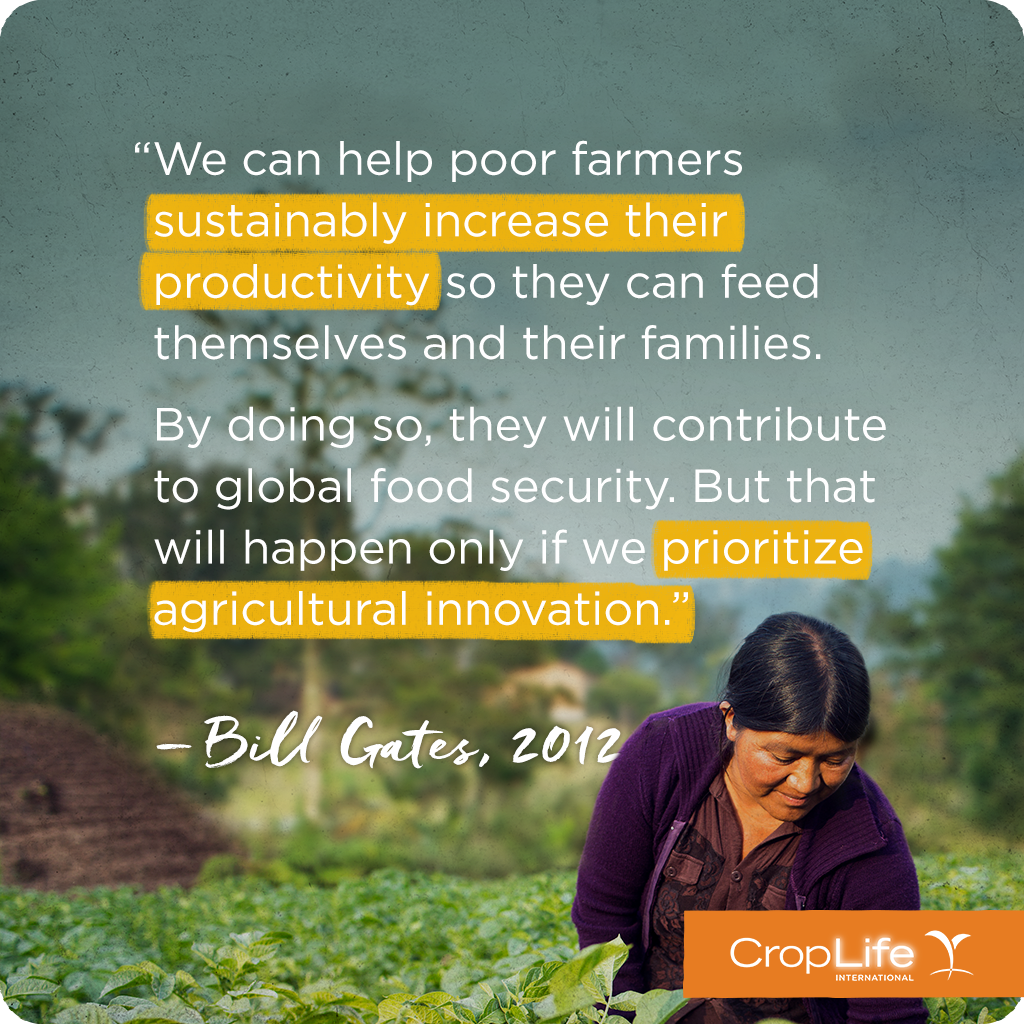All posts by FX Team
PUBLIC SECTOR BIOTECH CROPS TO HELP SMALL-SCALE FARMERS BEAT POVERTY
Source: CropLife International Plant Science Post – October 2016
Although the majority of today’s commercialized biotech crops are developed by large private companies, there is an enormous amount of plant biotech research being done by public sector institutions worldwide. Much of this research is focused on local crops in Asia and Africa, which could have a significant impact on food and nutrition security, as well as improve community health and farmer livelihoods. We talked with CropLife International’s John McMurdy, Director of Emerging Markets & Development Partnerships to learn more about public sector research of biotech crops. Continue reading..
6 DEVELOPMENT TWEETERS YOU SHOULD FOLLOW
Source: CropLife International Plant Science Post – October 2016
 For those interested in the role of plant science in international development, here are six Twitter handles you should have a grip on:
For those interested in the role of plant science in international development, here are six Twitter handles you should have a grip on:
- @worldfoodprize: Recognizing achievements of individuals who have advanced human development by improving the quality, quantity or availability of food in the world. (Read about the 2016 World Food Prize laureates who created biofortified crops where critical nutrients are bred into staple crops.)
- @mark_lynas: Advocate for plant biotechnology who busts myths about GMOs.
- @farmingfirst: A global coalition calling on world leaders to increase agricultural output in a sustainable and socially responsible manner.
- @JulieBorlaug: Granddaughter to the Father of the Green Revolution Norman Borlaug advocates for innovation and technology to end hunger and poverty.
- @globalfarmernet: The Global Farmer Network are farmer’s voices in support of free trade and the freedom to choose technologies needed to sustainably maximize productivity and profitability.
- @kevinfolta: Land-grant scientist exploring ways to make better food with less input as well as effectively communicating science to the public.
BILL GATES SAID IT BEST
Source: CropLife International Plant Science Post – October 2016

SMALLHOLDER FARMERS PROSPERING WITH PLANT SCIENCE
Source: CropLife International Plant Science Post – October 2016
For a small-scale farmer in the developing world, a healthy crop can be the difference between prosperity and poverty. Watch three farmers from India, Ghana and Honduras explain how their lives have transformed thanks to plant science knowledge and training.
PLANT SCIENCE NEWS AND UPDATES RECAP – SEPTEMBER 2016
Check out a recap of biotech new and updates for this month of September!
GOLF SHOTS MADE EASIER WITH PLANT SCIENCE
Crop protection products are one of several tools used for controlling insects, weeds and diseases that, if left unchecked, would ruin the game of golf!
Source: CropLife International Plant Science Post – September 2016

INSIDE THE WORLD’S MOST DIVERSE GARDEN
Visited by more than a million tourists each year the Kew Royal Botanical Gardens are one of London’s top attractions with the world’s largest and most diverse collection of living plants. Sara Redstone, plant health and quarantine officer at Kew, discusses the importance of plant science tools, such as crop protection products and Integrated Pest Management, to keep the garden in good condition as well as safeguard rare and endangered plants.
What plant science tools does Kew use to maintain the gardens?
Source: CropLife International Plant Science Post – September 2016
VIOLETS ARE BLUE AND ROSES CAN BE TOO
Roses are red and violets are blue, says the old romantic poem. But nowadays, roses can be blue, too, thanks to modern biotechnology!
Source: CropLife International Plant Science Post – September 2016
